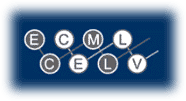

Self-evaluation Exercise at
PROSPER-ASE Language Centre,
Bucharest, Romania
A Case Study
Laura Muresan
![]()
The context
PROSPER-ASE Language Centre is an
educational NGO, founder and full member of QUEST Romania. Its main asset
is the people. It is, therefore, part of the Language Centre's
organisational philosophy to promote the continuous development of all
staff members both
- in order to ensure that the services offered to external customers are in line with national and European requirements [QUEST, EAQUALS] and
- in order to motivate the Language Centre's 'internal customers', since professional growth is a key motivator in our context.
On-going (self-)evaluation accompanies the various stages of the process, to make sure that professional development is going in the right direction. Self-evaluation is often combined with team exercises for the evaluation of language centre activities and services, as well as with peer observation and feedback sessions.
Case Study
Here is a case study to illustrate the link between individual self-evaluation
and institutional self-evaluation.
A Self-reflection Questionnaire was handed out to all staff members, inviting them to reflect on
- their most memorable professional development experience(s) through the Language Centre and how they had benefited from it/them
- how their professional development had an impact on other people (students and colleagues)
- the dynamics of professional development and customer care at the Language Centre.
This sequencing of questions allowed for a shift of focus from individual self-evaluation of professional development to the latter's impact on the others, and from there to an evaluation of Language Centre dynamics in two inter-related domains: professional development and quality assurance.
Here is a summary of the responses to the questions in the survey:
Question 1: Which development opportunities created through PROSPER-ASE have been most useful for you?
Staff members indicated that they had benefited from courses and internships abroad (esp. in the UK). The most appreciated development opportunities included
- participation in conferences abroad and in-country workshops (special mention of those organised at/through PROSPER-ASE)
- support to complete the PhD research
- working as teacher trainers: "the possibility for experienced teachers to take their development a step further"
- teaching challenging courses, using a great variety of updated materials
- opportunities to be creative
- working as translators and interpreters
- sharing experience through discussions and feedback
- being part of a team: "everybody's concern for everybody else's professional development"
Question 2: In what way have you benefited from them?
Personal professional benefits included:
- improved knowledge of management principles, strategies and practices; "becoming more perceptive of other managerial issues";
- becoming more confident and independent in teaching, learning and communicating;
- gaining expertise and becoming more professional, "a step forward in my career";
- becoming aware of weaknesses and strengths regarding the teaching style; "I became aware of the important role of the learners in the educational process. I was happy to discover an alternative to the 'God-like' teaching attitude I had experienced as an undergraduate student";
- learning about flexibility and independent study, thanks to team-work;
- a "sense of community", having "both educational and social benefits in a tremendously lively and stimulating environment".
Question 3: How have your students and the Language Centre (in general, incl. other colleagues) benefited from your professional development?
There was a consensus that the students had experienced something different
and more effective (as shown also by the results in different tests like
Cambridge, TOEFL, etc., as well as by questionnaires administered throughout
the modules).
The respondents expressed hope that the Language Centre had benefited
from their professional development as they had passed on as much as they
could from their experience. E.g. "this year has brought something
new: my own professional development is not a one-way process any more,
it has become a mutually beneficial one. I have tried to pass on to colleagues
a bit of the expertise and experience I myself gained in time".
Question 4: How do you perceive the dynamics of professional development at & through PROSPER-ASE?
Professional development was perceived as ongoing and individualised, evolving in stages which fed into a dynamic process.
Question 5: How do you perceive the inter-relatedness between professional development opportunities and customer care at PROSPER-ASE?
Customer care was perceived as undergoing a spectacular development taking into account the so-called quantitative criteria (premises, study centre, facilities). At the same time, the members of staff coming in contact with the customers have developed negotiating skills and better efficiency in communication. The general feeling was that professional development had a positive impact on customer care. The latter was felt as being "both stimulating and a permanent source of concern".
Suggestions regarding (A) Further Professional
Development; (B) Improved Customer Care:
(A) At the end of each module, there should be "case study seminars"
in order to discuss real problems and difficulties that occurred throughout
the module.
Some teachers suggested that the Language Centre should try to find solutions
for setting up longer development programmes, e.g. in the form of Master
or Diploma courses. Other teachers understood development in a wider sense,
e.g.: "I will always have the feeling of development as long as to
'develop' means (a) gradually grow or become more advanced, stronger;
(b) think or produce a new idea, product and make it successful and effective!"
(B) For further improving customer care, members of the teaching staff suggested socialising and informal talks with the course participants. Another proposal was to record classes that could then be presented to potential customers when they came for the placement test, so that they could make informed choices.
By way of conclusion
As we can see, this survey tells us a lot about what motivates teachers,
what they appreciate in the professional development opportunities created,
how they see their role within the organisation, and also what they think
of the dynamics of organisational processes. What is essential is the
atmosphere of mutual trust within the institution, as well as everybody's
commitment (including the management's) to bring about changes for the
better. This way, self-evaluation is not just an instrument, it is part
of organisational philosophy.
